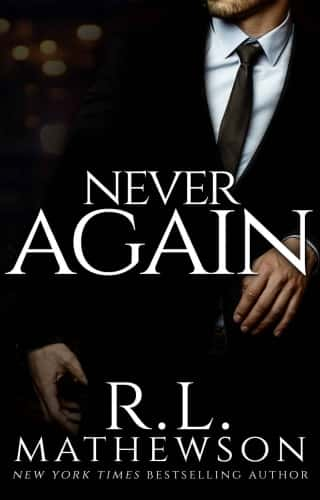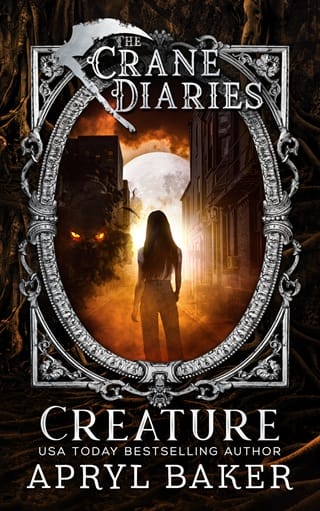Chapter 51
TWENTY-SIX YEARS AGO
T he soldier camp smelled like people.
For a youth who had spent his life among sheep, human smells were distracting. Wrong, like a splash of color that was too vibrant, drawing too much attention.
He clustered with his family at the mouth of the training yard, which occupied a ridge along the highlands near the Stoneward monastery. Black smoke assaulted the sky, marching from bellows and forges spilling bloody light. The sounds of metal on metal, like the cries of damned souls, rang within the forges—but also from the practice grounds, where men swung blasphemous weapons.
Stone covered the ground here, so close to the great aboshi—the mountaintops, and the spren who were their souls. Would his family really just … step on it? It was all so overwhelming—with the oppressive scents of sweat and the cries (and strangely, laughs) of the fighting men—that it made Szeth pull against his mother’s side.
Elid stood tall, obviously trying to pretend that—as the older sibling—she was stronger. She took a deep breath, then stepped off the soil onto stone. As she did, he caught another glare from her. This is your fault, that glare proclaimed, echoing what she’d said to him the night before. Though she’d always seemed resentful of their slow life, she was not happy in the least to have it stolen away. Still, she could have gone to live with cousins. A terrible decision to have to make, yes, but he couldn’t be completely blamed. Could he?
Father went next, joining Elid on the stone. As Szeth hung back, holding to his mother, she took something from her pouch. A small sheep made of wool. It smelled … of Molli?
He touched it, then glanced up at his mother. No words passed between them, though Mother wiped tears from her eyes. He’d thought Molli’s pelt buried, but evidently Mother had saved some of the wool. Szeth should have been too old for toys, but he clutched it anyway, tucked it away before anyone could see. It gave him the strength to step onto the stone. It was hard under his feet. Wrong.
Mother joined him, and eventually a man in a leather jerkin came jogging over. He was a burly type, with dark hair and skin. He unrolled a scroll, nodding to himself as he read. “Neturo-son-Vallano? Zeenid-daughter-Beth? Right, welcome. Thanks for signing up. We can always use more hands.”
“We didn’t …” Father said, then trailed off. “We were forced into this.”
“Says here only your child was,” the man replied. “You parents are volunteers. That’s rare.” He dithered, then offered a hand to Szeth’s parents. “Betheth-son-Vetor. Captain of recruitment and discipline.”
Father tentatively took his hand and looked over the long camp covering the ridge, full of buildings and bustling people. Father’s job had always been to herd shepherds as shepherds herded sheep. Szeth didn’t know much about that, but if these soldiers had been sheep, he would have called them a poorly watched flock. There was an air of laziness to the place. Those who sparred or trained were watched by twice as many people who were lounging. To Szeth’s left, a large number of men congregated around the cookfires, where women tended great metal cauldrons.
Some men were doing their laundry at racks farther along—Betheth said soldiers were required to see to their own clothing and equipment. Everyone in their family would get training in the warrior’s script, and all but Szeth would be allowed to—after a year—apply for work at the monastery instead, if they wanted. To become acolyte shamans, where women could choose to be warriors.
Until then, Elid and Mother would have the choice of cooking, washing floors, or tending the animals sent for slaughter. The elderly or infirm among the flocks were sent up here, and in abstract, Szeth had always been fine with this. Animals at the ends of their lives could still add this way; even people fed the soil when dead.
“I don’t see families …” Mother said. “I thought people served for generations as soldiers. What of them?”
“They usually get a transfer,” Betheth said. “They become city guards or work lumberyards. It’s … more comfortable for stabler individuals.” There was an implication to his voice. That he assumed Szeth’s family would eventually find their way to such work as well. “Anyway, let me send the three of you off to your bunks. You’ll have your own room, spacious as things go here. I’ll take the lad to initial assessment—”
“I’m going with him,” Father said, a hand on Szeth’s shoulder. “Wherever he goes.”
Betheth hesitated, then shrugged. “Right, then. Zeenid, I’ll send you to check out the quarters …” He gave her instructions and a little map drawn in black charcoal. Szeth was used to writing being in ink, with reeds. Soldiers, it appeared, did things differently.
Once Mother and Elid had moved off, Betheth led Szeth and his father around the perimeter of the training grounds to where a small group of four youths were waiting.
Betheth held his hand toward Szeth. “You can’t be wearing that any longer, son,” he said, gently. Pointing at Szeth’s handkerchief.
No more color. The uniforms were dark brown, and not a speck or splash of true color graced the camp. In taking off his kerchief and handing it over, Szeth felt as if he were giving up something vital that defined him.
This is good, the voice said in his head, making him jump. This is where you belong. It had a moderate pitch; he couldn’t decide if it sounded male or female.
What are you? Szeth thought, apprehensive. But got no reply. The voice unnerved him, and he held to his father’s hand, though he probably should have acted more mature. However, he was younger and smaller than the other youths who lined up for Betheth. None of them had fathers with them.
Betheth nodded for Szeth to join the line. When he didn’t move, Betheth spoke, a sharpness to his voice. “You’re a soldier now, Szeth,” he said. “I am to teach you discipline. Don’t make me teach it harshly.”
So Szeth reluctantly let go of his father’s hand and joined the other four youths in the line.
“How do you enforce discipline here?” Father asked.
“We make examples of the worst cases,” Betheth said.
“And the best cases?”
“Allowed free time.”
“You said that the men are in charge of their own gear—”
“Their kit and clothing, yes.”
“How is this enforced?” Father asked.
“Same way. Beatings if they’re sloppy.”
Father shook his head. “Beating one sheep rarely makes the others obedient. It only makes them fear you.”
“Fear makes obedience though, doesn’t it?” Betheth said. “Look, Neturo, people here aren’t like the ones you know. These come because they’re deviants. Problems.”
“Problems like my son?” Father asked.
Betheth had trouble finding words to reply to that. Father, though … conflict wasn’t his way. He simply stepped back, clasping his hands and surveying the training field.
The Farmer said humans choose, Szeth thought, and are defined by that choice. Is that true even here, in this place of bloody stone and men who subtract?
Szeth stood there, nervous, dwarfed by the older teens. Had they … done as he had? He found it hard to imagine they had … had killed someone.
That was difficult to acknowledge. It was as if those events had happened in a dream, to another person. Yet at the same time he could still feel the rock under his fingers—smooth, but rough at once. Could still feel the warmth. The blood.
“I need to know,” Betheth said, “what I’m working with in you all.” He waved a thick-fingered hand as several workers walked out of a shed. Pushing corpses: dead sheep, hung up on racks with wheels on the bottoms. Szeth felt nauseous.
Betheth handed each boy a spear. “Show me what you’ve got. Pretend those are enemies on the field, and you need to subtract them before they reach the houses beyond.”
“If we don’t,” one of the boys said, “do we … go home?”
“No,” Betheth said, firm. “Once you’ve been sent here, you don’t ever go back. But don’t be so glum. People are wrong—subtracting isn’t evil. We’re necessary parts of society. We are the most important, it might be argued.” He waved to the carcasses. “I just need to know what kind of training to give you. So have at it. Prove that you’re going to make full use of your new life. I promise you, it’s far more fulfilling than you assume. We, of all people, get to express what’s truly inside of us.”
The other boys moved forward. Then, with shocking aggression, they began to stab at and attack the carcasses. One even shouted. Once they started, they seemed to need this. To release something pent up inside. Their shouts resonated with Szeth. He felt so lacking in control, so frustrated by the apparent nonexistence of answers. Everyone talked about him, but they didn’t ask what he wanted. He gritted his teeth and started forward.
Careful, the strange voice said, butting into his mind. This is an odd test. I find it amusing each time I see it done. They’re trying to judge if you’re out of control. If you can contain the desire to subtract or not.
Szeth hesitated. That Voice knew a great deal.
It’s self-fulfilling, the Voice continued. They encourage new recruits to attack all out, then use that as proof that the boys were secretly broken all along—that you can distinguish someone who subtracts, if you bring out their true selves. The system has been flawed for a while now, but you can use that.
“How?” Szeth whispered.
Make a single surgical strike with the spear at the neck of the carcass. Don’t pretend to rage; show restraint. That will distinguish you from these others.
Arms trembling, Szeth raised the spear. “What are you?” he whispered.
I am the spren of the stone you discovered, the Voice said. And I ask that you not tell others of me, Szeth. I’ve been watching over your family. I am sorry for what has happened, but there are important things for you to do.
There was … a plan for him?
There were answers?
Someone was watching ?
Szeth calmed his nerves, then gripped the spear and stabbed once at the carcass’s neck. He was shocked by how easily the sharpened steel tip of the spear went in, until it ground against bone.
He pulled the spear free, then stepped back.
“What was that, Szeth?” Betheth said. “That’s all you have?”
“You said I needed to stop it,” Szeth said. “You said to pretend it was an enemy. I pretended as best I could. One stab, and that should do it, right?”
“That’s not what the report says you did to the soldier,” Betheth said. “He was from this camp, you know. Others are going to talk about you.”
Repeat after me: That man was sick.
“That man was sick,” Szeth said.
I did what I needed to make sure the sickness didn’t spread.
“I did what I needed to do to make sure the sickness didn’t spread, sir.”
Nothing more. My tool was a poor one for the task, but I needed to defend myself.
“Nothing more. I’m sorry I used the rock. It was wrong of me, but I was under attack.”
Betheth nodded at those words, then he made some notes. Szeth glanced back at his father, who stood with his arms folded, lost in thought as he stared at the camp. Neturo had found a problem to solve.
“Come,” Betheth said, putting his arm on Szeth’s shoulder and steering him away from the other boys. “Let’s talk to the camp’s general, Szeth. You might find a better home in officer training.”
 Fullepub
Fullepub 



